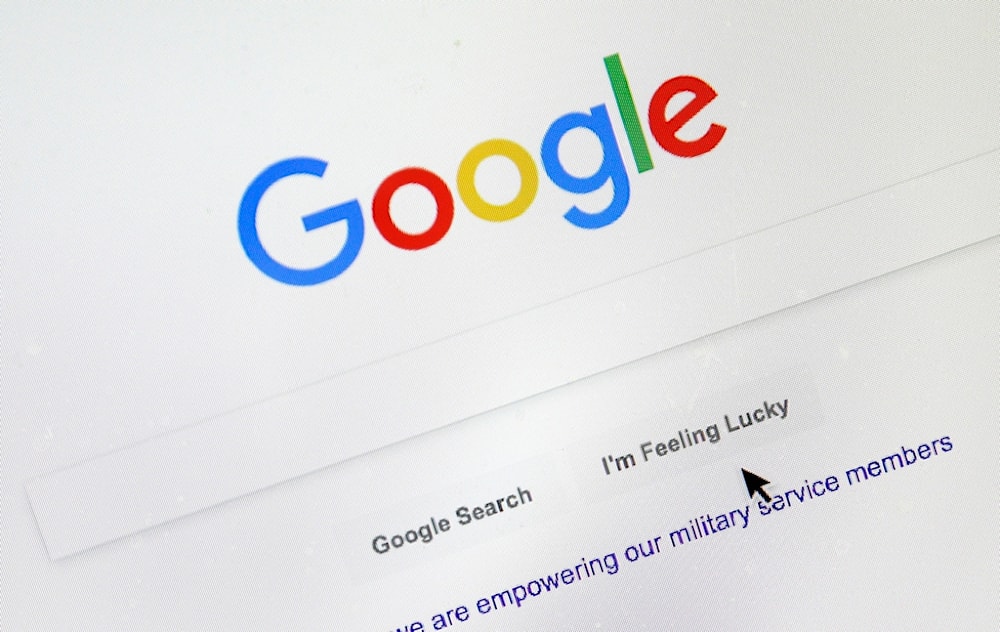Google to settle $5bln lawsuit for stalking users' private activity
The lawsuit accuses Google of tracking, collecting, and identifying browsing data "in real time" while obscuring it from users.
-

A cursor moves over Google's search engine page, in Portland, Ore., on Aug. 28, 2018 (AP)
Google is settling a class-action lawsuit against the corporation for shadow-stalking users' activity, even when an incognito page is being used, Reuters reported on Thursday.
The lawsuit was filed in the Northern District of California in 2020 by Florida resident William Byatt and California residents Chasom Brown and Maria Nguyen, seeking what amounts to 5 billion dollars covering millions of users since 2016 when the complaints were proven. It accuses Google of tracking, collecting, and identifying browsing data "in real time" while obscuring it from users. Moreover, it was alleged that data was collected through 'incognito' browsers as well, which defies the purpose of the concept in the first place.
The plaintiffs said this conduct turned Google into an “unaccountable trove of information” as the company now knows a users' life, including "embarrassing things" they might have wanted to conceal.
Google was also accused of taking Chrome users' private activity and matching it to their public Google profiles.
Read more: ‘Push’ notifications: A secret spying frontier
Google bids to dismiss the lawsuit
In August, Google's request to dismiss the lawsuit was rejected by the judge on the case, Yvonne Gonzalez Rogers, based on obscuring company policy and conduct from users, specifically when browsing privately.
“Google's motion hinges on the idea that plaintiffs consented to Google collecting their data while they were browsing in private mode. Because Google never explicitly told users that it does so, the Court cannot find as a matter of law that users explicitly consented to the at-issue data collection,” she said.
However, Google and the plaintiffs reached a deal in which a preliminary settlement will be disclosed, as both parties will reach an agreement for the settlement. Then, the litigation is expected to get dismissed and not undergo a full trial. According to Reuters, both parties agreed to a binding sheet, which they will abide by until the formal settlement for court approval by February 24, 2024.
Google faces the US Department of Justice
In September, Google witnessed another class action lawsuit, this time against the US Department of Justice to establish whether the tech giant unlawfully wielded its influence to establish a monopoly over the internet search engine realm.
This trial stands as a litmus test for US antitrust legislation and could usher in profound transformations within the tech sector, redefining the way individuals interact with the online world.
At its core, this legal confrontation hinges on a central question: Did Google's position as the preeminent search engine for the majority of Americans take anti-competitive measures that left internet users with no viable alternatives?
Kenneth Dintzer, the attorney representing the DoJ, claimed that Google expends approximately $10 billion annually on contracts designed to ensure its status as the default search engine on devices like iPhones. This practice, according to Dintzer, effectively cancels out meaningful competition and positions Google as the internet's gatekeeper.
John Schmidtlein, the company's lead attorney, argued that Google's dominance in online search — estimated by the government to command approximately 90% of the market share — is the result of its superior product compared to alternatives like Microsoft's Bing search engine.
This trial, which was expected to span 10 weeks and feature an array of witnesses and internal Google documents, may ultimately unveil that monopolizing search has long stood as a paramount objective for the company. Judge Amit Mehta presides over the case, and notably, there is no jury involved in the trial.

 4 Min Read
4 Min Read








